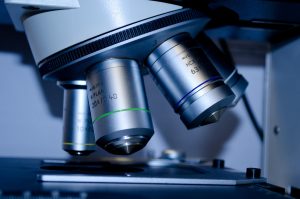The thymus is a rarely discussed and therefore underappreciated organ positioned below the breastbone which plays a critical role in adaptive immune response by producing T cells. Given that it degrades with advancing age, reducing the human body’s ability to stave off infection, it is worth looking into if its breaking down can be mitigated—or if there is another alternative altogether. To this end, researchers from the University of Florida have devised a means to grow entirely functional thymus organoids from what has proved to be the basic building block of replication in biology: the human stem cell.
This work, now only in the proof-of-concept stage, and its resulting “mini-organs” will be harnessed to develop a series of patient-unique therapies for thymic dysfunction treatment.
“An experimental model system to interrogate the mechanisms of thymic insufficiency and function is necessary and could serve to further the development of cell-based therapies for thymic defects,” said the corresponding study’s senior author, Dr. Holger Russ.
Though animal models have for years been utilized to construct thymus organoids, the T cells derived from Russ and his team’s research more closely matches the function of a real human thymus. As detailed in the paper published in Stem Cell Reports, the building of these organoids starts with the growing of thymic epithelial progenitor cells (TEPs) from human stem cells, and which are then combined with mesenchymal cells as well as stem cell-derived blood cell precursors.























